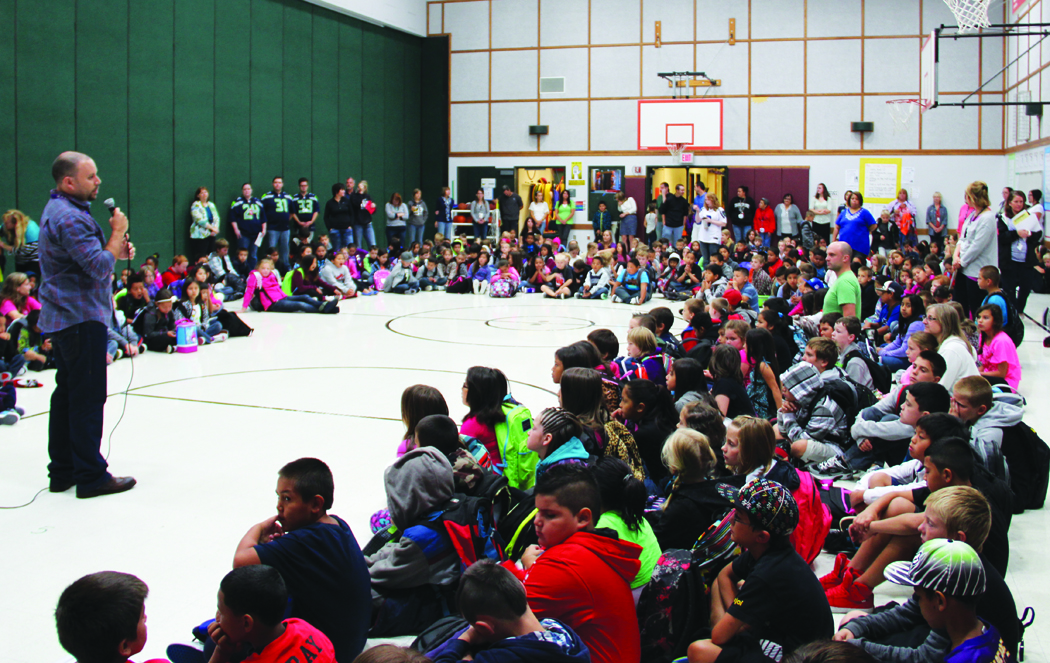Cultural values teach kids about respect and responsibility

By Andrew Gobin, Tulalip News
Tulalip – Entering the main hallway of Tulalip Quil Ceda Elementary you hear the drum beat. Nearing the gymnasium you begin to feel the beat resounding through the corridors. Kids stream in off busses, excitement building as they find a seat. Others come to school, drum in hand. This is the norm for students at Tulalip Quil Ceda Elementary, where each day is begun with a song and a presentation of core Tulalip cultural values.
Started at Tulalip Elementary in its final year, the morning assemblies are an excellent forum to create a community, where students and teachers can communicate about respect and the responsibilities they have. The school’s canon of learning, GROWS, is visible in almost every aspect of the school day.
“The students have really taken to GROWS. It stands for Grow your brain, Respect for all, Own your actions and attitudes, Welcome all who come to our community, and finally Safety is paramount. The morning assemblies are used as a way to teach a value that ties into one of the GROWS,” said Dr. Anthony Craig, school principal.
The songs are led by students, with the help of occasional community volunteers. The students are seated in a fashion similar to Coast Salish traditional gatherings, which is in the round.
In an effort to build a stronger educational community, some classes are trying a technique called looping, where the students of a class will not change as they progress to the next grade. Some classrooms have dividing walls that are opened up the majority of the time, so that two classes become one larger learning group.
“We are trying to develop groups of students that learn well as individuals and as a collective,” explained Dr. Craig.
This year, Tulalip Quil Ceda Elementary will develop a cultural aspect to their educational community. The Marysville School District created a cultural specialist position in the school in an effort to incorporate traditional aspects of life into the learning process. In doing so, the district supports and encourages what the faculty of the school is trying to achieve.
Former Tulalip teacher and new cultural specialist for the district Chelsea Craig said, “Here at school you see kids walking around with a drum and a school bag. They don’t have to be a native student; they can just be themselves, at school, as they are meant to.”
The Tulalip Tribes Youth Services department created two comparable positions, with the intention of collaborating with the school. Tenika Fryberg and Taylor Henry are the cultural specialists for Youth Services.
“This has never been done [in Tulalip or Marysville] before, so I plan to develop a program where the community decides what they would like to have brought into the curriculum,” noted Craig. “I’d like to see more community involvement too. Why can’t we have a grandma in the back of every class? We should make this school ours. It is ours; it belongs to the community as every school does. We shouldn’t wait for our own k-12 program, nor do we need to,” she added.
Both she and Dr. Craig acknowledge that some families are not comfortable with their children participating in these cultural activities and have other activities available for children to opt out of the cultural practices, though all of the students are still brought together as a whole for the group message in an effort to continue to develop the learning community that is Tulalip Quil Ceda Elementary.
